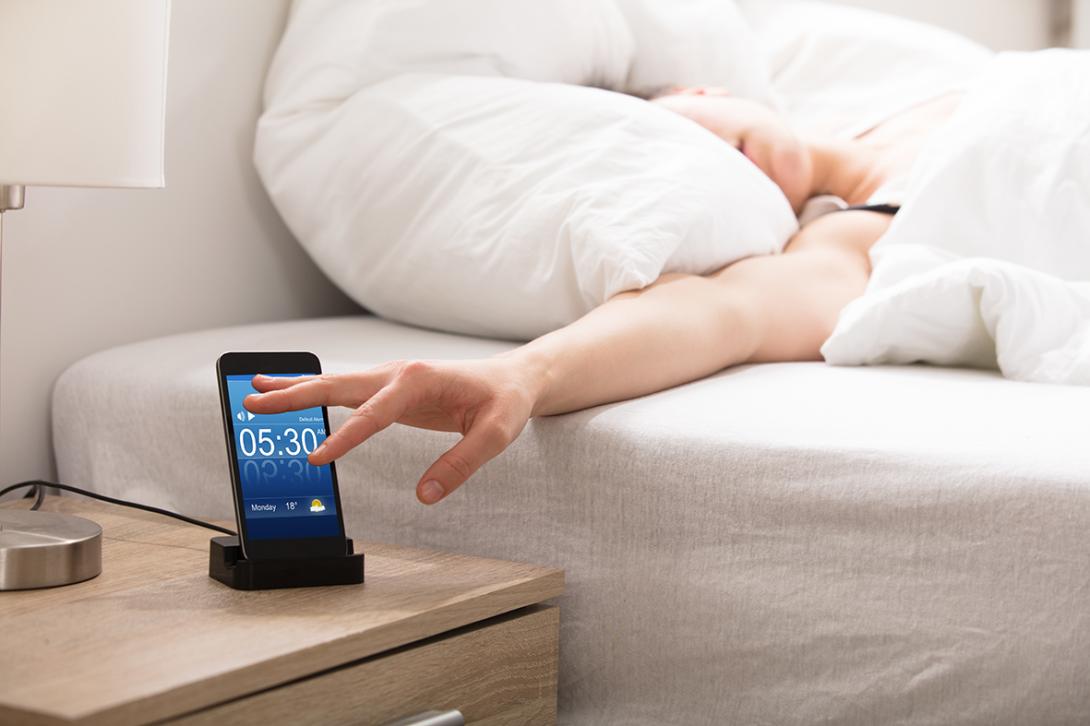
"A lack of sunlight makes it more difficult to synchronise our biological clocks correctly"
Interview with Paula García Casanova, a psychologist specialising in sleep from the HLA Group
What are the main sleep problems linked to a lack of sunlight?
Light is the quintessential synchronising stimulus for people’s biological clocks. The presence of light tells our brain that it is daytime, while its absence indicates that the time for sleep is approaching. The progressive absence of light from dusk onwards allows the release of melatonin, the sleep hormone. This is also called chemical darkness, and this process opens up the path to sleep.
A lack of sunlight makes it difficult to correctly synchronise our biological clocks with the environment, which can cause problems when trying to fall asleep or remaining asleep, waking up early, sleep deprivation, irritability, dysphoria, sadness, concentration difficulties, memory problems, apathy…
What can we do to ensure that our brains distinguish daytime from night-time?
We need to establish the maximum contrast between both moments using synchronising stimuli to help our biological clocks know when it is day and when it is night.
Are more consultations related to sleep disorders received during the periods when the clocks are changed?
Not necessarily, but this does not mean that there are no difficulties regarding this point. Fortunately, sleep in general is being talked about more and more, and more specifically, our biological clocks. This helps people to do everything possible to adapt to the clock changes in the right way.
Do some groups suffer more with this change?
The most vulnerable groups when the clocks change are children and the elderly, as their biological clocks have the particularity of having less plasticity regarding change. In these two cases, we must take into account that they will need slightly more time for their biological clocks to synchronise properly with the environmental constraints.
Is it normal to wake up often during the night and even have nightmares during the adaption period to the new time?
ges in their own way. Having said this, waking up often during the night is more understandable than having nightmares. In fact, nightmares are usually linked more to psychological factors such as stress, rather than chronobiological questions such as the changes in our biological clocks.
"In the same way that there are transitions in nature, such as dawn and dusk, our brains need this transition time: a pre-sleep routine is the best way to get to sleep"
What does quality sleep and rest look like?
The quantity of sleep is habitually talked about rather than its quality. However, the quality is a fundamental parameter because, regardless of the number of hours we sleep, if these are not of quality sleep, we will not feel rested. The quality of the sleep is responsible for the feeling of repairing sleep when waking up. Continuous sleep is linked to suitable sleep quality, while broken sleep will be linked to inadequate sleep. Sleep quality may be compromised by different reasons. There are different sleep disorders that can affect its quality, such as Obstructive Sleep Apnoea Syndrome, Periodic Limb Movement Syndrome or Restless Legs Syndrome, amongst others.
Furthermore, other disorders such as those related to pain and digestive pathologies, although they are not directly linked to sleep and rest, can also affect and reduce its quality. Finally, there are other factors related to sleep hygiene that are also important to take into account: the temperature of the bedroom; whether it is a noisy room or not; the influence of light or the type and condition of our mattress.
Finally, what is a pre-sleep routine?
The truth is that we do not have a button in our brains that allows us to switch off and make sleep appear instantly. In the same way that there are transitions in nature, such as the case of dawn and dusk, our brains also need this transition time. And a pre-sleep routine is the ideal element that can help us to get to sleep. It involves behaviours or conducts aimed at helping our brains to get ready to go to sleep.
Obviously, there is no single, standard pre-sleep routine for everyone. Each person has to build their own in terms of their needs and preferences. The only condition that must be met by this type of routine is that it is made up of elements that generate well-being and relaxation for the person, in order to be able to break with the day and welcome a time for rest.
Paula García Casanova
She graduated in Psychology in 2011.
Today she is a psychologist specialising in sleep at the HLA Group.





